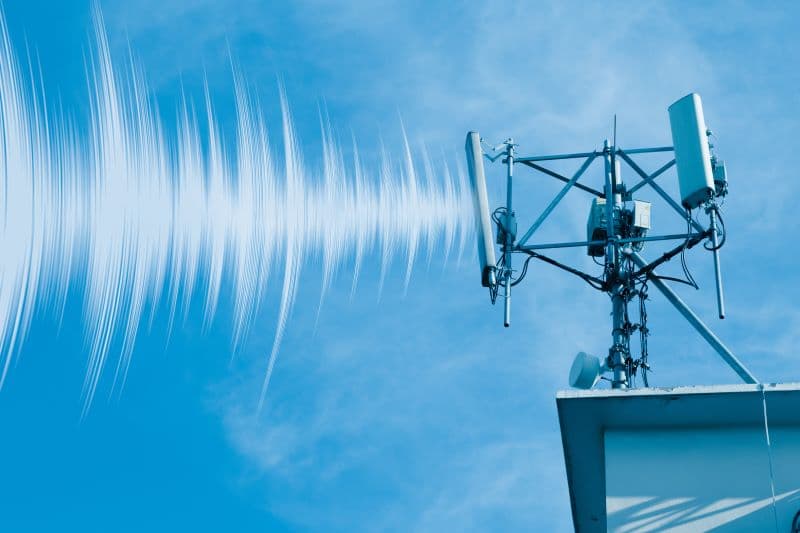WILSONELECTRONICS.COM, WILSONPRO.COM AND ZINWAVE.COM ARE NOW WILSONCONNECTIVITY.COM

Keep Your Data Secure with Strong Cellular Connectivity
July 20, 2017
Estimated Reading Time: 2 minutesModern consumers demand connectivity at all times. What’s the first thing most of us do when we sit down at a restaurant or walk into a hotel room? Check for a Wi-Fi network to connect to. The decision makes sound financial sense. Why waste precious data when you can surf the internet and send text messages and emails over free Wi-Fi?If there is a Wi-Fi network available at these establishments, there’s a good chance it doesn’t require a password or other login credentials for access. Even more, you may never really understand how the establishment’s network is operated and what systems may be logging your traffic activity. These unsecured connections leave your valuable data vulnerable to malicious users intent on stealing it.Many internet users understand these risks but choose to connect to Wi-Fi anyway. They do so without asking a vital question: should I use my cellular data plan instead of Wi-Fi? The answer is almost certainly yes. However, the speed and security of that data plan is reliant on a strong cellular signal.Providing a strong cellular signal
The speed and security of cellular data is contingent on a strong cellular signal. Many buildings boast superior cellular connections, but many others suffer from poor connectivity caused by building materials or natural obstructions. A passive distributed antenna system (DAS) can help you overcome these challenges and meet your connectivity needs.Passive DAS, or cell phone signal boosters, can make a big difference. These devices use antennas to detect and capture any existing signal outside the building. Then, the booster amplifies the signal and broadcasts it inside the building, providing a better signal within range of nearby cell phones and mobile devices.Depending on the size and layout of the interior space you’re working with, you may need several antennas and amplifiers to provide the required improvement. That’s where the expertise of a professional installer comes in: they can help optimize the booster system for the best results.Contact us to learn more about how a cell phone signal booster can improve your building’s reception, or download one our latest case studies to learn how WilsonPro integrators helped achieve total cellular connectivity for their clients and can do the same for your business.Read more about this topic: WiFi vs. Cellular Data: Why WiFi May Not Cut it for Your Business
Choose cellular data for security
Many people have been conditioned to believe Wi-Fi is secure. While that’s true for many home or Enterprise Wi-Fi networks, the security of the Wi-Fi network at your local coffee shop or retail store is less guaranteed and may be susceptible to data snooping or man-in-the-middle attacks, where cybercriminals may intercept and filter your network traffic.Users need to select when to use public Wi-Fi carefully because encrypted 3G or 4G data is almost always more secure. Streaming videos or music? These activities rapidly eat up data and pose relatively low security risk. Choose Wi-Fi. Sending work emails or mobile banking? Use your cellular provider’s data plan to increase security.As long as the cellular signal is strong, cellular upload and download speeds are as fast as, if not faster than, Wi-Fi. If security is a priority, there’s no excuse not to use your cellular data.Providing a strong cellular signal
The speed and security of cellular data is contingent on a strong cellular signal. Many buildings boast superior cellular connections, but many others suffer from poor connectivity caused by building materials or natural obstructions. A passive distributed antenna system (DAS) can help you overcome these challenges and meet your connectivity needs.Passive DAS, or cell phone signal boosters, can make a big difference. These devices use antennas to detect and capture any existing signal outside the building. Then, the booster amplifies the signal and broadcasts it inside the building, providing a better signal within range of nearby cell phones and mobile devices.Depending on the size and layout of the interior space you’re working with, you may need several antennas and amplifiers to provide the required improvement. That’s where the expertise of a professional installer comes in: they can help optimize the booster system for the best results.Contact us to learn more about how a cell phone signal booster can improve your building’s reception, or download one our latest case studies to learn how WilsonPro integrators helped achieve total cellular connectivity for their clients and can do the same for your business.Read more about this topic: WiFi vs. Cellular Data: Why WiFi May Not Cut it for Your BusinessFeatured & Trending Now
